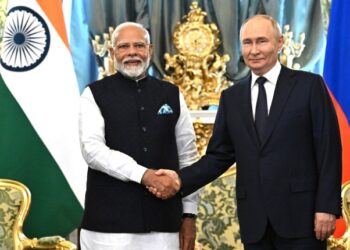The global population reached 8 billion on Tuesday, after adding a billion people in the previous 12 years, with India on the verge of supplanting China as the world’s most populous country next year.
According to the United Nations, the global milestone represents significant advances in public health that have reduced the risk of death and increased life expectancy, but it is also a wake-up call for humanity to look beyond the numbers and meet its shared responsibility to protect people and the planet, beginning with the most vulnerable.
“8 billion hopes. 8 billion dreams. 8 billion possibilities. Our planet is now home to 8 billion people,” the United Nations Population Fund (UNFPA) tweeted.
According to UN Secretary-General Antonio Guterres, unless we bridge the yawning chasm between the global haves and have-nots, we are setting ourselves up for an 8-billion-strong world filled with tensions and mistrust, crisis and conflict.
In 2023, India is expected to overtake China as the world’s most populous country. According to the population prospects report, India’s population will be 1.412 billion in 2022, compared to China’s 1.426 billion. India is expected to have 1.668 billion people in 2050, far outnumbering China’s 1.317 billion by the middle of the century.
On November 15, the world’s population reached 8,000,000,000, with the world adding one billion people in the previous 12 years.
The United Nations described the global population reaching 8 billion as a remarkable achievement, given that the human population was under 1 billion for millennia until around 1800, and that it took more than 100 years to grow from 1 to 2 billion.
In comparison, the world’s population has grown at a rapid pace over the last century, and despite a gradual slowing in the rate of growth, the global population is expected to exceed 9 billion around 2037 and 10 billion around 2058, according to UN estimates.
Source:BS







 Finance
Finance







